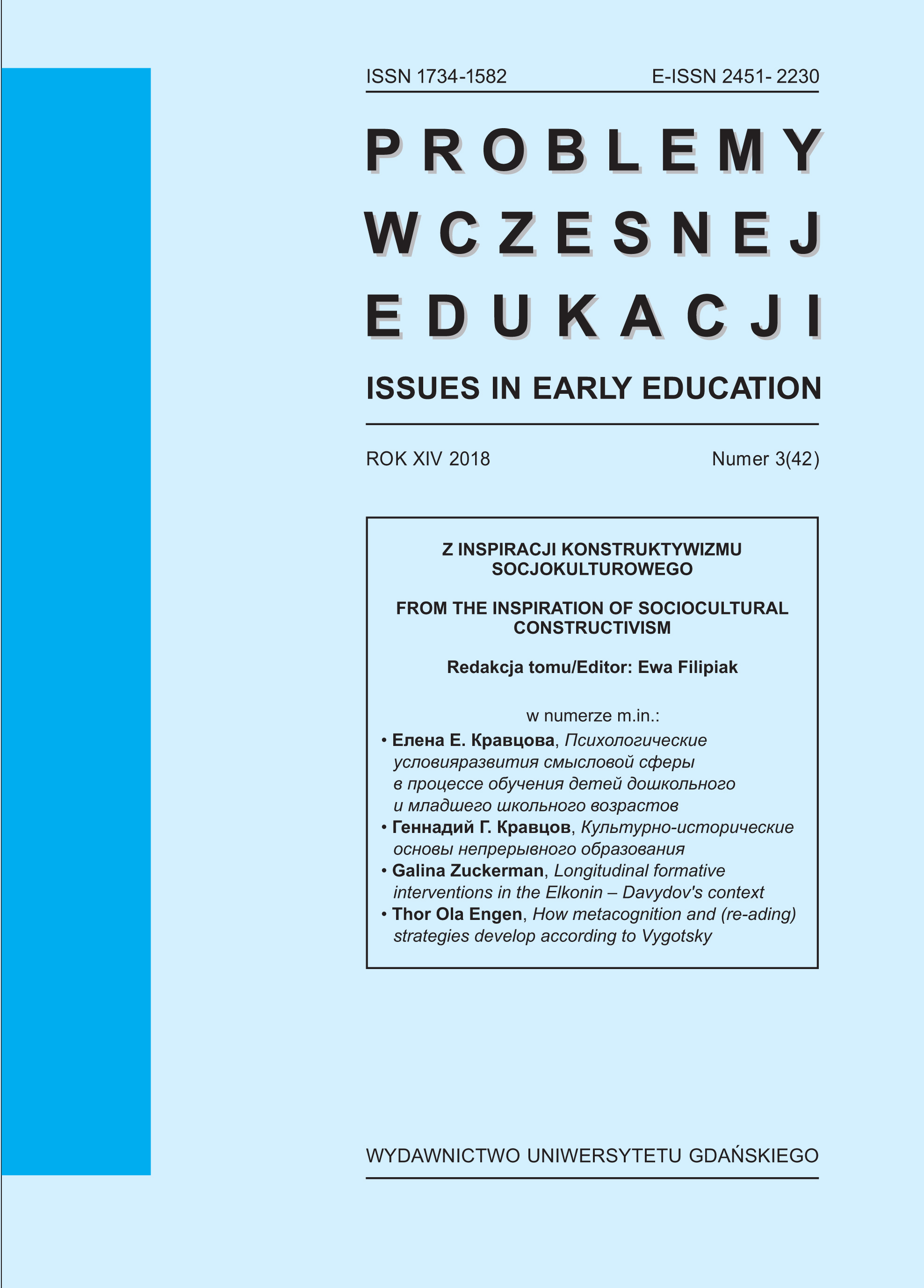Psychological conditioning of the development of the sphere of sense in the process of teaching kindergarten and primary school children
DOI:
https://doi.org/10.26881/pwe.2018.42.01Keywords:
development of the sphere of sense, imagination, stages of development, L.S. Vygotsky’s cultural and historical theoryAbstract
The paper address an issue related to the indicators and mechanisms of transition from one stage of education to another in the context of L.S. Vygotsky’s cultural-historical theory. On the basis of an analysis of the cultural-historical theory and its respective pedagogical practice it can be inferred that the realization of the process of education, constructed in the logic of the development of “sense-meaning” relationship, enables formation of the value sphere of will in children, which becomes reflected in the level and quality of the learners’ developing awareness. The specificity of the construction of such education prompts the purposeful and directed development of an individual’s imagination at different ages. The presented specific traits of the development of imagination at different stages of childhood and the described respective features of educational curricula construction are aimed at the creation of conditions for the development of the sphere of sense.
Downloads
References
Выготский Л.С. (1960), История развития высших психических функций. В: Л.С. Выготский, Развитие высших психических функций. Под редакцией А.Н. Леонтьева, А.Р. Лурия, Б.М. Теплова. Москва, Изд-во Академии педагогических наук.
Выготский Л.С. (1982), Воображение и его развитие в детском возрасте. В: Л.С. Выготский, Собрание сочинений в шести томах. Т. 2. Проблемы общей психологии. Под редакцией А.Н. Давыдова. Москва, Изд-во Педагогика.
Выготский Л.С. (1982), Проблема воли и ее развитие в детском возрасте. В: Л.С. Выготский, Собрание сочинений в шести томах. Т. 2. Проблемы общей психологии. Под редакцией А.Н. Давыдова. Москва, Изд-во Педагогика.
Кравцов Г.Г., Кравцова Е.Е. (2017), Психология игры: культурно-исторический подход. Москва, Изд-во Левъ.

 Academic Scientific Journals
Academic Scientific Journals





